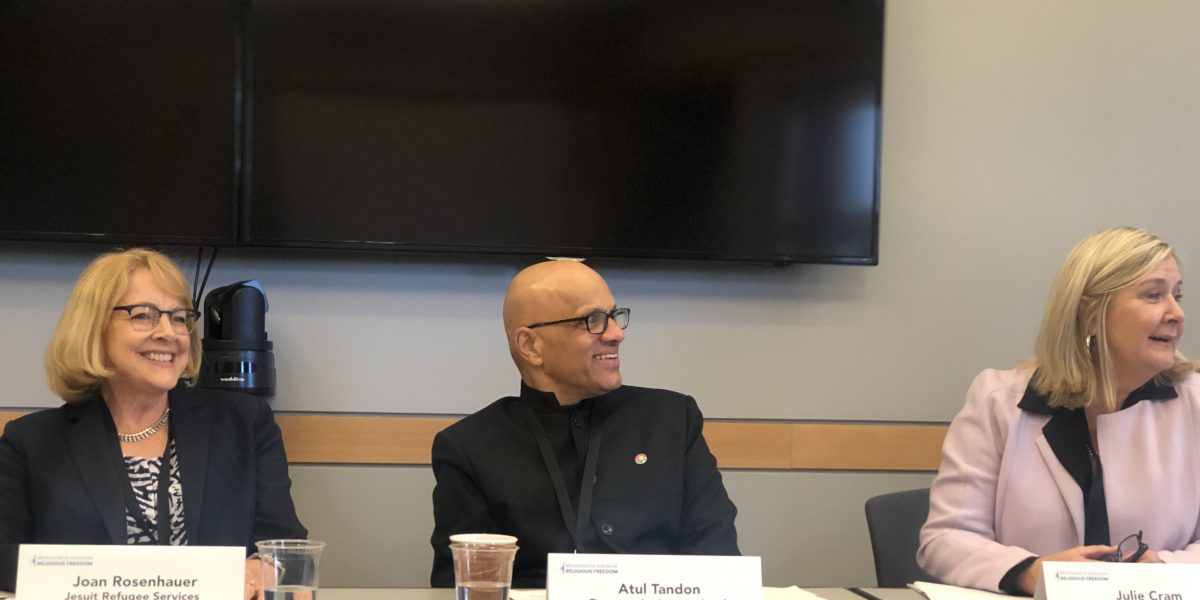JRS/USA Addresses 2nd Annual Ministerial to Advance Religious Freedom
29 July 2019

The U.S. Department of State hosted its 2nd annual Ministerial to Advance Religious Freedom in Washington, D.C. earlier this month, offering an opportunity for global leaders to gather and discuss challenges and concrete approaches to promoting greater respect for religious freedom around the world. The Ministerial featured remarks from Secretary of State Mike Pompeo and Vice President Mike Pence as well as various breakout sessions addressing topics of particular interest.
JRS/USA Executive Director Joan Rosenhauer had the opportunity to speak as a panelist during a breakout session, entitled “The Role of Faith-Based Organizations and Schools in International Education.” Organized by the U.S. Agency for International Development (USAID), the panel focused on faith-based organizations working to promote tolerance and respect through their efforts to expand quality education to vulnerable populations.
Other panelists included Atul Tandon, Chief Executive Officer at Opportunity International; Fr. Benjamin Chinnappan, founder of Dalit Solidarity; and C. Holland Taylor, CEO of LibForAll Foundation. The panel was moderated by Julie Cram, USAID Deputy Assistant Administrator in the Bureau for Economic Growth, Education, and Environment and Special Coordinator for International Basic Education Assistance.
During her remarks, Joan described how JRS programs demonstrate the best of Jesuit values while simultaneously serving vulnerable displaced people regardless of their religion. “Our work with refugees really focuses on the formation of the whole person; this means that in addition to providing academic skills, our education incorporates psychosocial support and helping them develop reconciliation skills.”
Education continues to be an emphasis of JRS’s work, offering stability and hope for the world’s most vulnerable. JRS operates schools and teacher training programs in refugee camps around the world that involve entire families and host communities. In doing so, positive relationships are built between communities with differing customs and beliefs.
Joan continued by sharing an example from her recent visit to JRS programs in Chad. “What I saw [in Chad] was mostly Muslim students in a program led by a Catholic organization that hires staff of all different faith traditions. Those students are not only from the camp itself but also the local community. It’s tolerance in action, religious freedom in action, reinforcing it every day for those students.”
JRS would like to extend a special thank you to USAID for organizing this important discussion and to all of the panelists who each agree that increasing access to a quality education is vital in order to build a better, more tolerant future for us all.



